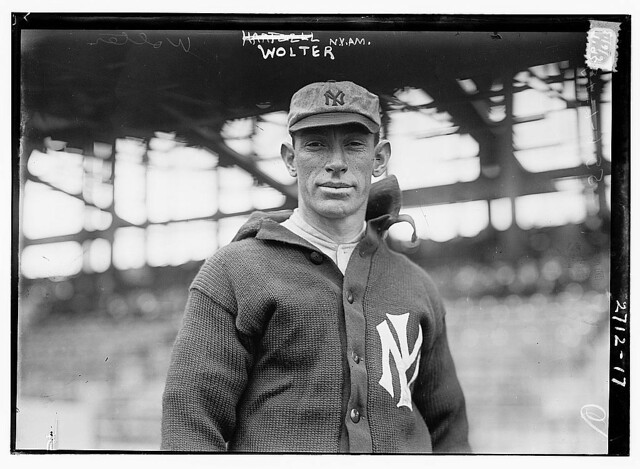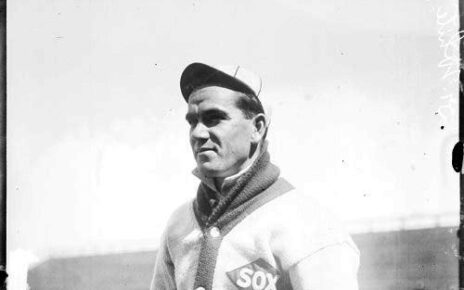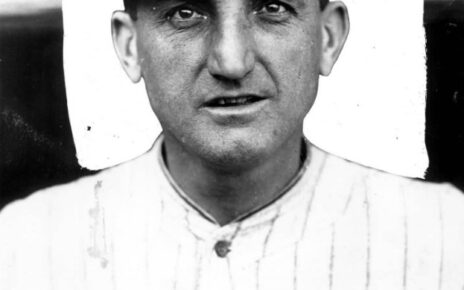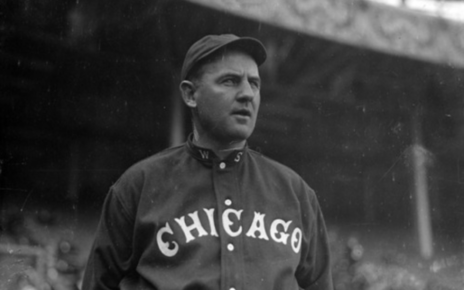Harry Wolter was a fiery gentleman, though not in terms we usually associate with Deadball Era ballplayers. As far as off the field activities were concerned, Wolter played it pretty straight and narrow. However, he did stick up for himself when it came to being paid his actual wages as a ballplayer. This resulted in more than a few unkind words and belaboring of contracts that certainly impacted his career in some fashion. All the same, I’ve got way more appreciation for a guy who fights for his worth than a guy who just rolls over.
That’s not why Wolter is being written about today. Rather, it’s quite obvious that Wolter is getting screen time on this site because of his years spent as a two-way player. The majority of those years were in the minor leagues. He did qualify as a legit two-way player (minimum 10 games at pitcher and 10 games at another position) in one big-league season. By the time he retired from baseball Wolter had put together, if nothing else, quite an interesting resume as a player.
The first year that Wolter took a true crack at the two-way game was in 1906 with the Fresno Raisin Eaters of the Pacific Coast League. That season he pitched in 36 games and played unknown positions in an additional 113 games. Wolter was decent with the bat, slashing .307/?/.381 in 522 at-bats. He displayed good bat-to-ball skills, but 0 home runs and only 19 doubles and 10 triples didn’t light up the power meter. The right-handed hurler started 33 of his 36 games on the mound. In total, he posted an ERA of 3.22 and a WHIP of 1.349 in 287.2 innings pitched. Not the best numbers, but numbers that do lead to more two-way opportunities.
In 1908 Wolter was with the San Jose Prune Pickers of the independent California State League. He pitched in 28 games on the mound and record-wise he was a dominant 25-2. Unfortunately, nothing else is known about his pitching stats that season. The left-handed slugger hit for a .339 average in 283 at-bats spread across 46 games at various unknown positions. Those are the only numbers that were recorded, and they look great at first glance but aren’t anywhere near definitive enough to label his two-way play a success or failure.
The 1909 season saw Wolter back in affiliated baseball. He spent the 1909 season with the American League’s Boston Red Sox. Wolter pitched in 11 games while he played first base and right field in an additional 11 and 18 games respectively. The Monterey, California native was decent with the bat, slashing .240/.292/.372 for an OPS+ of 107 in 139 plate appearances. The 59.0 innings Wolter spent on the mound were less than stellar. His ERA, 3.51, and FIP, 3.23, weren’t all that bad. However, he had a very high WHIP of 1.627 and a well below average ERA+ of 73. His total rWAR of -0.7 put the icing on the cake of an all-around bad season for Wolter.
It appeared as if Wolter’s two-way years were behind him. Following the 1909 season, he only pitched in 1 game before retiring after the 1920 campaign. Then Wolter came out of retirement to spend his 1927 year with the Logan Collegians of the C-Level Utah-Idaho League. Facing much lesser competition than he had earlier in his career Wolter still struggled as a two-way player with the Collegians. The main culprit were the 17 games he pitched. An ugly ERA of 7.41 and an even uglier WHIP of 2.009 paled in comparison to him giving up 181 hits in 113.0 innings pitched. Wolter played 11 games at first base and another 15 games at various positions, and good thing he did. With a bat on his shoulders, Wolter put up .294/?/.365 with 1 home run and 6 doubles in 126 at-bats. Again, not the best numbers, but in a season that was a two-way failure at least Wolter was a decent hitter.
Overall Wolter’s career as a two-way player is a mixed bag leaning more towards a net negative. He had one pretty good season, one pretty bad season, one truly awful season, and a season where there’s not enough information to make an accurate assessment. That leaves Wolter as an interesting player, but nothing more than a footnote in two-way player history.
Lead photo courtesy of Unknown – Bain News Service




